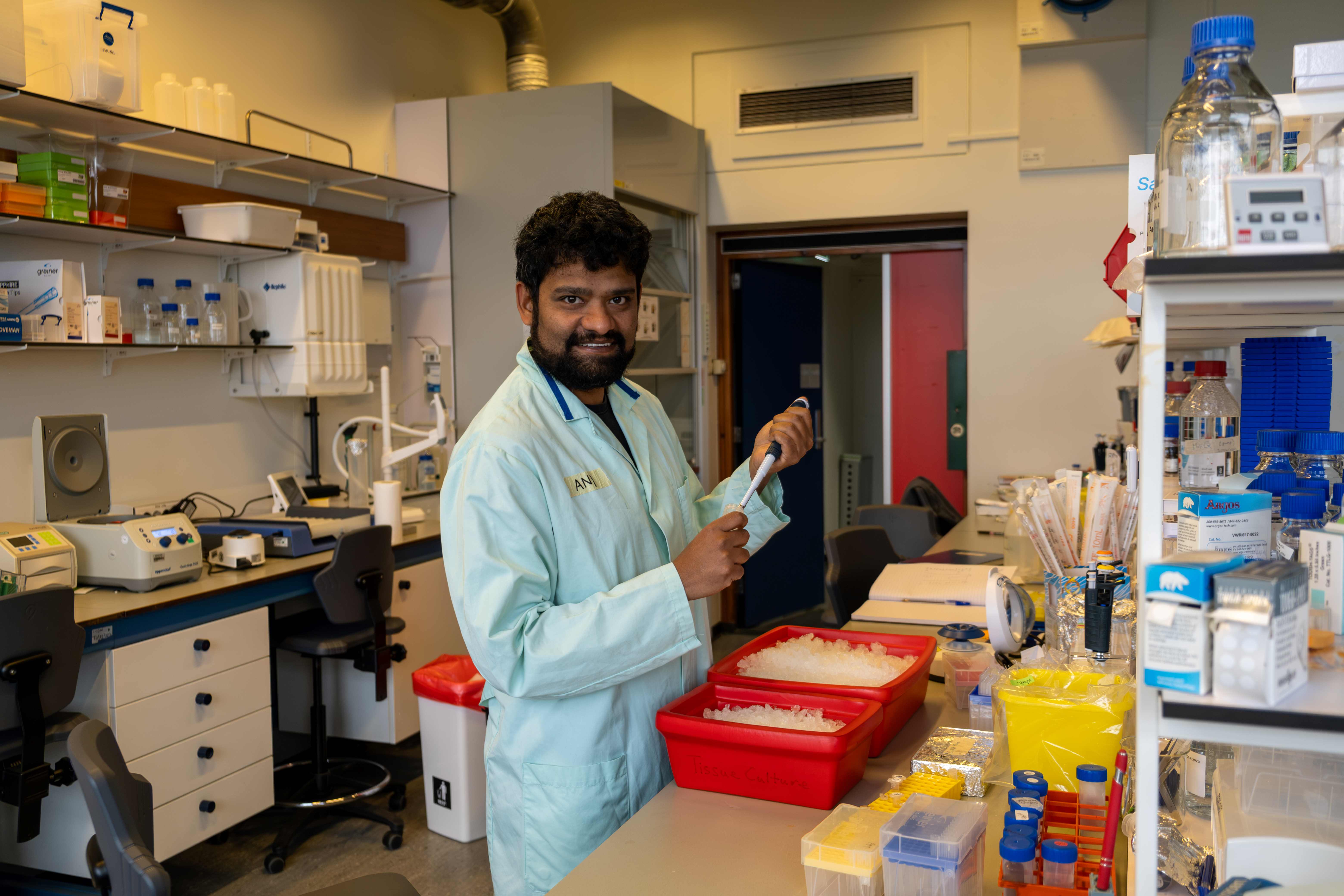IBT welcomes first international research group leader: A Step Toward Global Research Excellence
Mon Mar 24 09:13:49 CET 2025
Mon Mar 24 09:13:49 CET 2025 | Mon Mar 24 09:13:49 CET 2025 - Mon Mar 24 09:13:49 CET 2025
In November the Institute of Biotechnology (IBT) is set to open a new laboratory, marking a historic milestone. For the first time, a foreign scientist will lead a research group at the institute, bringing fresh expertise and international collaborations.
Dr. Aniruddha Mitra, an expert in molecular motor proteins and cellular organization, was selected through an open competition. His interest in IBT began years ago when he collaborated with Czech scientists and visited Prague in 2022 to attend a seminar. “I quickly realized this is a welcoming and dynamic scientific community with high-quality research,” he said. These positive experiences later motivated him to apply for the position and ultimately join the IBT team.
Dr. Mitra’s research focuses on understanding how cells transport and organize their internal components, particularly in neurons. His work combines advanced imaging techniques and biophysics to study these processes at a molecular level. “Neurons rely on precise protein distribution to function properly, and disruptions in this system can lead to diseases. By studying these mechanisms in live organisms, we aim to uncover fundamental principles of cellular organization,” he explained. His group will introduce a new model organism to IBT’s research, which opens exciting possibilities for interdisciplinary collaboration.
The arrival of an international group leader is seen as an important step in the institute’s evolution. According to Dr. Rohlenová, the head of the Laboratory of Cellular Metabolism at IBT, this reflects a broader trend: “Science has no borders. When we discover something new in Vestec, it is relevant to scientists around the world — and likewise, we work with knowledge from across the globe. The presence of a foreign team leader is a natural part of this process.” She also pointed out that this change will require certain adjustments — such as making internal communication more accessible to colleagues who do not speak Czech. Overall, however, she sees it as a step in the right direction towards greater openness and internationalization of the institute.
Dr. Lánský, the head of the Laboratory of Structural Proteins at IBT, shares this perspective, highlighting the impact on IBT’s global reputation. “We already have foreign students, but having an international group leader truly integrates us into the global research community. Institutions that take this step become more visible internationally, and I hope this is just the beginning of a broader trend,” he said. He also noted that the new lab’s focus on neuronal architecture and live-cell imaging methods complements existing research at IBT, fostering new synergies within the institute.
Dr. Mitra is also passionate about science dissemination. He merges his artistic skills with research, creating scientific illustrations, animations, and even comics to make complex topics more accessible. “Bridging the gap between scientists and the public is essential. I hope to explore innovative ways to communicate research effectively,” he added.
With this new addition, IBT is taking a significant step toward fostering a more diverse, innovative, and internationally connected research environment. The institute looks forward to the impact the new laboratory will have on advancing knowledge and strengthening global collaborations.

